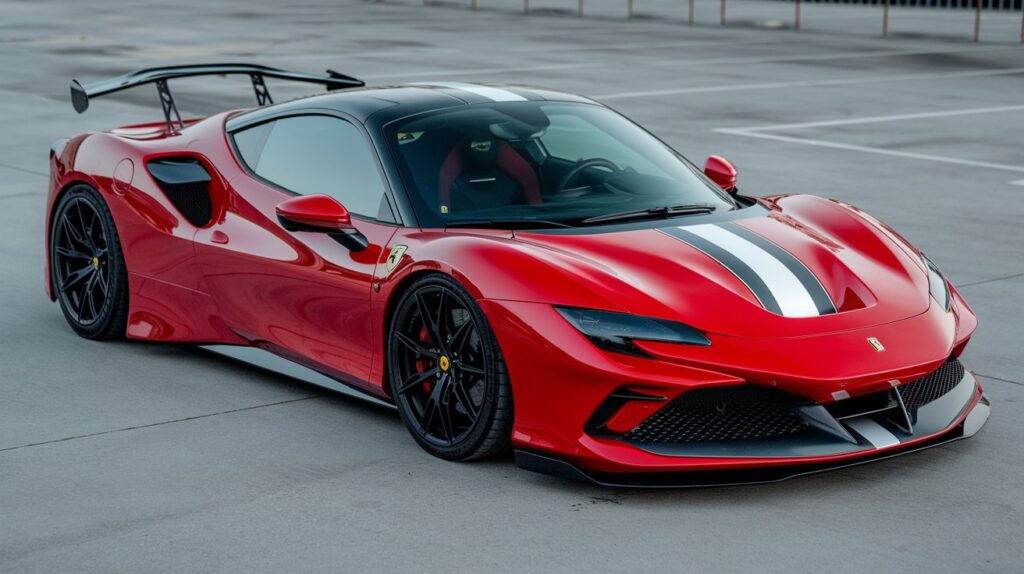As sustainable transportation gains momentum, many drivers face a decision: hybrid or electric? With rising fuel costs, environmental concerns, and evolving automotive technology, this choice becomes pivotal. Hybrid vehicles combine familiar combustion engines with electric assistance, while electric vehicles (EVs) embrace a gasoline-free future. Let’s break down their differences and help you choose the right fit for your lifestyle.
Table of Contents
Understanding Hybrid Cars
Hybrid cars blend gasoline engines with electric motors, optimizing fuel efficiency. Full hybrids can operate on gas, electricity, or both, while plug-in hybrids (PHEVs) prioritize electric power before using gas. Mild hybrids assist the engine but cannot run solely on electricity. This technology boosts mileage, especially in stop-and-go traffic, thanks to regenerative braking. However, their reliance on fossil fuels means they still produce emissions, and maintenance costs may be higher due to complex dual-power systems.
Understanding Electric Cars
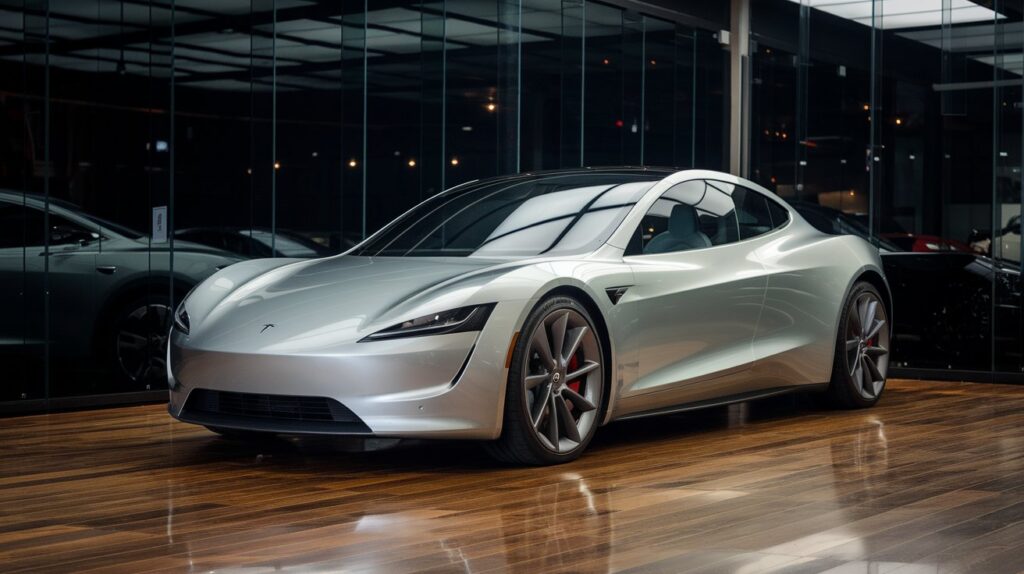
Electric vehicles (EVs) run exclusively on battery power. Battery electric vehicles (BEVs) produce zero emissions, while plug-in hybrids (PHEVs) use electric power supplemented by gasoline. EVs offer smooth, quiet rides and are cheaper to operate due to lower fuel and maintenance costs. Despite these benefits, some drivers worry about range limitations and charging availability. However, fast-charging advancements and expanding charging networks are alleviating these concerns.
Comparing Hybrid and Electric Cars
Hybrids have a longer total range due to their gasoline backup, making them suitable for long trips. EVs, on the other hand, excel in eco-friendliness with zero tailpipe emissions and fewer moving parts, reducing maintenance needs. Although hybrids typically cost less upfront, EVs often qualify for government incentives and provide savings on fuel and maintenance over time.
Advantages and Disadvantages of Hybrid Cars
Advantages:
Hybrid cars combine a gasoline engine with an electric battery, giving them a longer total driving range. This makes them ideal for long trips or areas with limited charging stations. They use less gasoline than traditional cars, which means lower fuel costs and fewer emissions (though they’re not fully eco-friendly).
Disadvantages:
Hybrids still rely partly on gasoline, so they aren’t emission-free. They also have two complex systems (gas + electric), which can lead to pricier repairs. While they save money on fuel, their upfront cost is usually higher than regular gas cars.
Advantages and Disadvantages of Electric Cars (EVs)
Advantages:
EVs produce zero tailpipe emissions, making them the greenest option. They’re cheaper to run (electricity costs less than gas) and require minimal maintenance (no oil changes, fewer parts to break). Many governments also offer tax credits or rebates to lower the upfront cost.
Disadvantages:
EVs can struggle with long-distance travel due to limited range and sparse charging infrastructure in some areas. Charging takes longer than filling a gas tank, and battery replacement costs can be high. However, technology is improving fast—newer EVs have better range, and charging stations are becoming more common.
Which Car Suits Your Lifestyle?
City residents with access to charging stations may find electric vehicles (EVs) more affordable to run and better for the environment, as EVs use electricity instead of gas, lowering both fuel costs and pollution. However, people who frequently drive long distances or live in areas without reliable charging options may prefer hybrids, which combine gas and electric power for greater flexibility on the road. Cost is another important factor, as hybrids typically have a lower starting price, making them more accessible to budget-conscious buyers. Meanwhile, eco-conscious drivers may lean toward EVs, valuing their zero emissions and positive impact on the environment. Ultimately, the best choice depends on personal driving habits, budget, and environmental priorities.
Cost Comparison: Hybrid vs. Electric
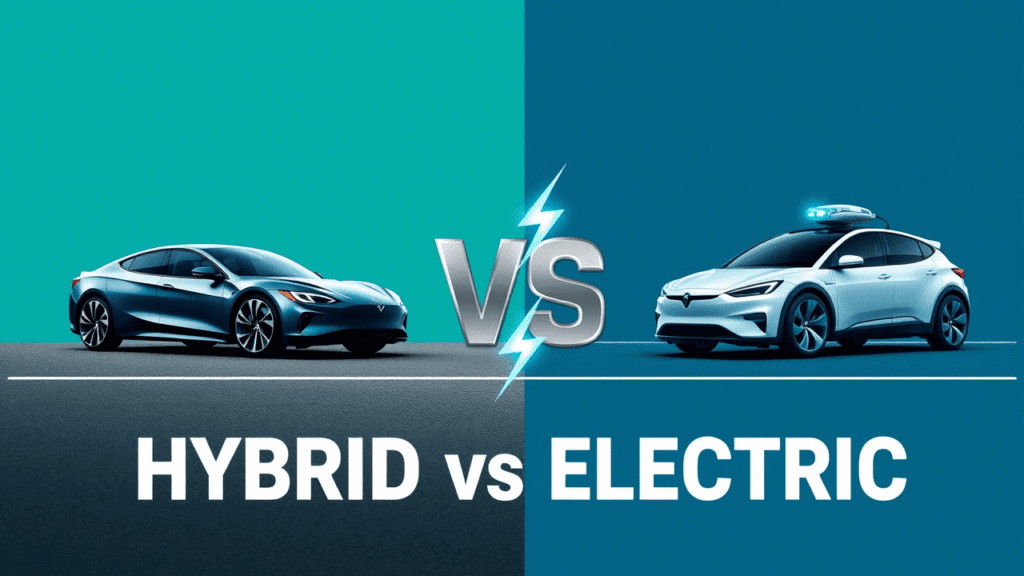
When comparing the cost of hybrid and electric vehicles, it’s essential to look beyond the purchase price and evaluate long-term expenses. Hybrids generally have a lower upfront cost. For example, a 2024 Toyota Prius starts at around $28,000, compared to approximately $39,000 for a Tesla Model 3.
However, EVs save more in the long run through reduced fuel and maintenance costs. Charging an electric vehicle can cost about $500 annually, compared to $1,500 or more for gasoline in a hybrid. Additionally, maintenance costs are lower for EVs because they have fewer moving parts—no oil changes, timing belts, or exhaust systems.
Government incentives can also tip the scale. In the U.S., federal tax credits of up to $7,500 are available for many electric models, and some states offer additional rebates. For example, a buyer in California could save over $10,000 when combining state and federal incentives on a new EV.
Battery replacement costs are often a concern for EV buyers, but battery technology is advancing. A Tesla Model 3 battery replacement can cost $10,000 to $13,000, but most batteries now last 150,000 to 200,000 miles. Additionally, many manufacturers, like Nissan and Hyundai, offer 8 to 10-year battery warranties, reducing long-term risks.
Overall, while hybrids are more affordable upfront, EVs often prove more cost-effective over time due to lower running costs, potential incentives, and technological advancements extending battery life. While hybrids usually cost less initially, EVs save more over time with lower fuel and maintenance expenses. EVs also frequently qualify for government rebates. Although EV batteries can be costly to replace, their lifespans are steadily improving, making long-term ownership more affordable.
Car Sales Competition in 2024: Hybrid vs. Electric – Which Wins?
In 2024, global car sales saw strong growth for both hybrids and electric vehicles. Electric vehicle (EV) sales reached 16.7 million units worldwide, a 20% increase from 2023, with China leading at 11 million sales. Hybrid vehicles gained traction, especially in the U.S., where sales jumped by 36.7%, accounting for 10.6% of the market.
Regionally, China’s EV sales surged by 40%, driven by government incentives and expanded charging networks. Europe sold 3.2 million EVs, with Norway leading at 90% EV market share. In the U.S., EVs and hybrids combined made up 21.2% of all new car sales.
Hybrids remain popular for their fuel savings and long-distance capabilities, while EVs are favored for eco-friendliness despite challenges like high costs and limited charging infrastructure.
In this growing competition, hybrids are best for flexibility, and EVs suit eco-conscious drivers ready for a greener future.
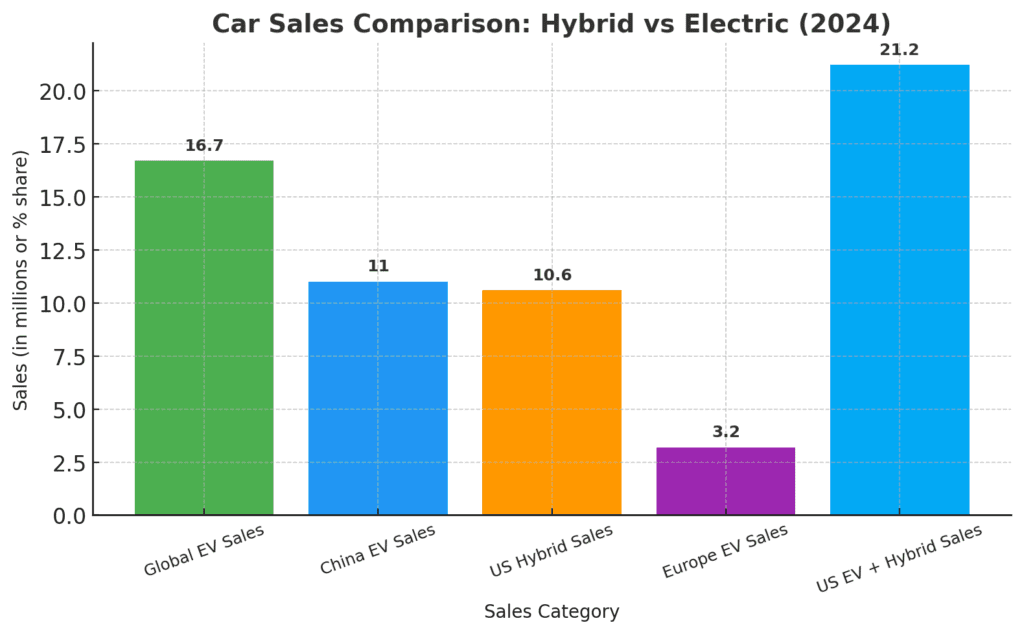
Environmental Impact: Which is Greener?
Hybrids produce fewer emissions than traditional gas-powered cars but still rely on fossil fuels. In contrast, electric vehicles (EVs) generate zero tailpipe emissions, making them cleaner on the road. However, EV production—particularly battery manufacturing—has its own environmental footprint. Over time, EVs become significantly more eco-friendly, especially when charged using renewable energy sources like solar or wind power. As technology advances and cleaner energy grids expand, EVs continue to lead the way in reducing overall environmental impact.
Popular Hybrid and Electric Models
Popular hybrid cars are a great choice for drivers who want to save on fuel without giving up the convenience of a gas-powered engine. The Toyota Prius is one of the most well-known hybrids, praised for its excellent fuel efficiency and eco-friendly design, making it a favorite among environmentally conscious drivers. Another popular option is the Honda Accord Hybrid, which offers a smooth and powerful driving experience while helping owners save money at the pump. This car is perfect for those who want a balance of performance and fuel savings.
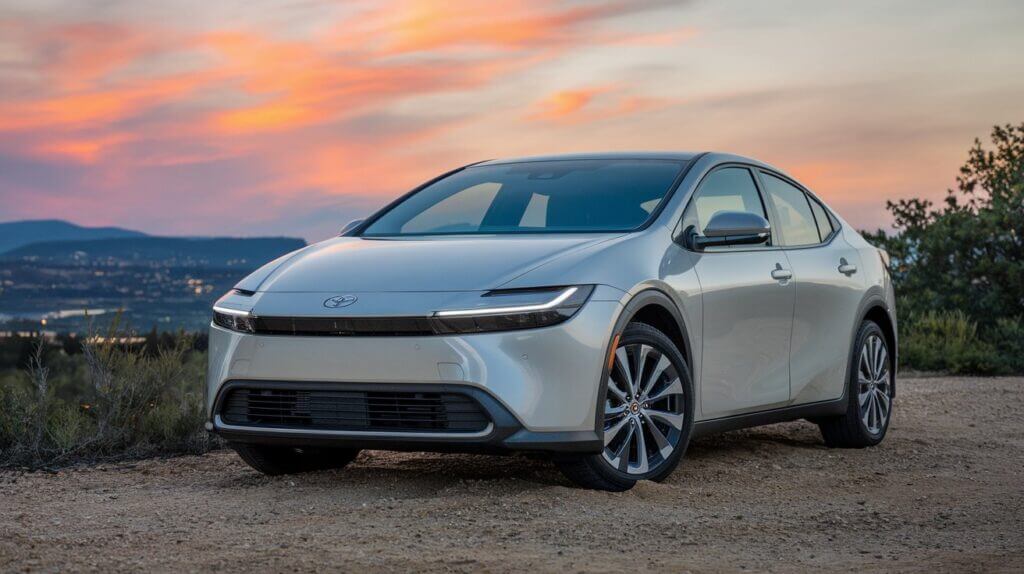
When it comes to electric vehicles (EVs), some models stand out for their technology, performance, and reliability. The Tesla Model 3 is a top choice, known for its quick acceleration, advanced technology, and features like autopilot for assisted driving. It’s a popular option for those who want a modern, high-tech driving experience. On the other hand, the Nissan Leaf is a great pick for drivers looking for a more affordable electric car that’s simple, practical, and easy to maintain. It’s known for being reliable and is a solid choice for everyday driving, especially in cities.
Both hybrid and electric vehicles offer unique benefits, from saving on fuel to reducing pollution. Whether you prefer the flexibility of a hybrid or the eco-friendliness of an EV, there are great options to suit your needs.
The Future of Hybrid and Electric Cars
The automotive industry’s future leans toward electrification. Battery advancements are extending ranges, and charging networks are becoming more accessible. Meanwhile, some governments are setting deadlines for phasing out gasoline vehicles, further accelerating EV adoption. However, hybrids are likely to remain an option for drivers who aren’t ready to transition fully.
Conclusion
Choosing between a hybrid and an electric vehicle depends on your driving habits, budget, and environmental values. Hybrids offer a practical middle ground with extended range and flexibility, making them ideal for long trips or areas with limited charging stations. On the other hand, electric vehicles (EVs) provide lower running costs, zero emissions, and government incentives, making them perfect for eco-conscious drivers, especially in urban settings.
As technology advances, the gap between hybrids and EVs continues to narrow, with EVs becoming more affordable and accessible. Whichever option you choose, both hybrids and EVs contribute to a greener, more sustainable future. Carefully consider your lifestyle and long-term costs to make the choice that best fits your needs.
Visit Us for more car information !
FAQs:
1. What is the main difference between hybrid and electric cars?
Hybrid cars use both a gasoline engine and an electric motor, while electric vehicles (EVs) run entirely on battery power without using gasoline.
2. Are hybrid cars more affordable than electric cars?
Yes, hybrids generally have a lower upfront cost than EVs. However, electric cars often save more in the long run due to lower fuel and maintenance costs and available government incentives.
3. Do electric cars cost less to maintain than hybrids?
Yes, electric cars have fewer moving parts, meaning no oil changes or complex engine repairs, making their maintenance cheaper than hybrids.
4. Can hybrid cars drive on electricity alone?
Only plug-in hybrid electric vehicles (PHEVs) can drive on electricity alone for short distances. Full hybrids use a combination of gas and electric power but cannot run solely on electricity for long distances.
5. Which car is better for long-distance travel: hybrid or electric?
Hybrids are generally better for long trips because they have a gasoline backup, providing a longer range without needing frequent charging.
6. Are electric vehicles more eco-friendly than hybrids?
Yes, electric vehicles produce zero tailpipe emissions, making them more eco-friendly than hybrids, which still burn gasoline.
7. Do electric cars qualify for government incentives?
Yes, many electric cars qualify for federal tax credits (up to $7,500) and additional state-level rebates, which can significantly reduce their purchase price.
8. How long does it take to charge an electric car compared to fueling a hybrid?
Charging an EV can take from 30 minutes (fast charging) to several hours (home charging), while fueling a hybrid with gasoline takes just a few minutes.
9. Is battery replacement for an electric car expensive?
Yes, replacing an EV battery can cost between $10,000 and $13,000. However, modern EV batteries last 150,000 to 200,000 miles, and most manufacturers offer warranties of 8 to 10 years.
10. Which car type is more suitable for city driving?
Electric vehicles are ideal for city driving due to their lower running costs, zero emissions, and regenerative braking, which is efficient in stop-and-go traffic.
11. Are hybrids still a good option if I care about the environment?
Yes, hybrids are more eco-friendly than traditional gas cars, but they still emit some greenhouse gases. For zero-emission driving, an electric vehicle is the best choice.
12. How do fuel costs compare between hybrids and EVs?
Electric vehicles are cheaper to run, costing about $500 per year for charging compared to $1,500 or more annually for gasoline in a hybrid.
13. Can electric vehicles handle cold weather as well as hybrids?
EVs may experience reduced range in cold weather, while hybrids are less affected because they can rely on their gasoline engines. However, newer EVs are improving their cold-weather performance.
14. Which car is better for rural areas: hybrid or electric?
Hybrids are typically better for rural areas where charging stations may be scarce. Their gasoline backup ensures a longer driving range.
15. Will hybrids become obsolete as electric vehicles become more popular?
Not immediately. Hybrids will remain popular for drivers who are not ready to switch fully to electric due to charging concerns or long-distance driving needs.

